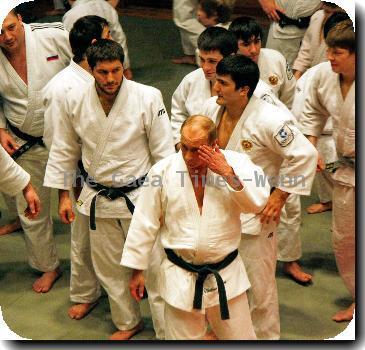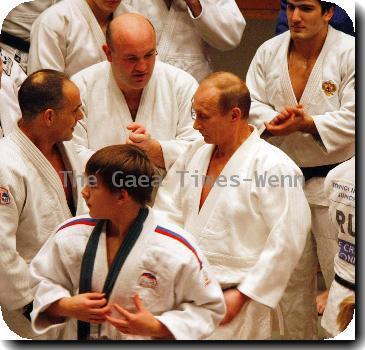UN Security Council to vote on Iran sanctions
By DPA, IANSTuesday, June 8, 2010
NEW YORK - The UN Security Council plans to vote Wednesday on a draft resolution that proposes additional sanctions against Iran for its advanced uranium enrichment activities, the council president said.
The council’s decision was taken Tuesday during a closed-door session that let its 15 members debate the details of the revised draft submitted by the United States, which has the support of Russia, China, France and Britain.
Those five countries are permanent members of the council with veto power. Their support is crucial for the adoption of the new sanctions. But the sanctions are opposed by at least three of the 10 non-permanent members: Lebanon, Turkey and Brazil.
Council members were to hold yet another private session late Tuesday to allow more discussion with the participation of non-council members, a formula to build transparency among UN members.
The council president, Mexican Ambassador Claude Heller, announced the time for the meeting at 10 a.m. (1400 GMT) Wednesday, but left it open as to whether the council would go directly into a vote on the sanctions or allow speeches before taking the vote.
Lebanon, whose population include Shiites and supporters of Iran-backed Hezbollah militants, said it would abstain in the vote Wednesday. Turkey and Brazil, which worked out a nuclear fuel swap deal for Iran in May, have come out against the sanctions. Lebanon, Brazil and Turkey have two-year seats on the council.
The United States, Russia, China, France and Britain had agreed on the sanctions before the new draft was presented to the council for discussion.
The scheduled vote on Iran sanctions had stirred sharp comments in some world capitals Tuesday.
Iran’s President Mahmoud Ahmadinejad said in Istanbul that the new sanctions would lead to a suspension of any diplomatic talks on the nuclear issue.
“I have said that the US government and its allies are so mistaken that if they think they can brandish the stick of (a sanctions) resolution and then sit down to talk with us; such a thing will not happen,” he said.
Ahmadinejad called any new sanctions a “big mistake” and suggested the world community reconsider its rejection of a nuclear fuel swap deal recently brokered by Turkey and Brazil.
In London, US Defence Secretary Robert Gates said a combination of diplomacy and pressure could still stop Iran from developing a nuclear weapon.
Gates said, however, that “the clock is ticking.”
“We have not lost the opportunity to stop Iran from developing nuclear weapons,” he said at a news conference after talks with Liam Fox, his counterpart in the new Conservative-led British government.
Russian Prime Minister Vladimir Putin, who attended the Conference on Interaction and Confidence Building Measures in Asia (CICA) in Istanbul with Ahmadinejad, said the sanctions should not be “excessive”.
“I hold the opinion that this resolution should not be unnecessary, should not put Iran’s leadership or the Iranian people into difficulty,” Putin said in Istanbul.
In Tehran, a foreign ministry spokesman dismissed the draft as “illogical”.
“A probable new resolution against Iran would be illogical, have no legal basis, make everything more complicated and eventually not benefit anybody, either,” Foreign Ministry spokesman Ramin Mehmanparast said in his weekly press briefing.
In late May, the US announced an agreement on draft sanctions with other permanent members of the council. The announcement came after leaders of Iran, Turkey and Brazil announced in Tehran the nuclear fuel swap, but that move was seen as not going far enough to resolve issues with Iran’s nuclear programme. The US said the sanctions would build on top of the three rounds of sanctions imposed on Tehran since 2006.
State Department spokesman PJ Crowley said told reporters in Washington that Iran has had plenty to time but failed to meaningfully engage in dialogue.
After the vote, “Iran will understand that there are consequences for its failure to come forward,” Crowley said, adding that the United States is still open to resolving the dispute diplomatically.

